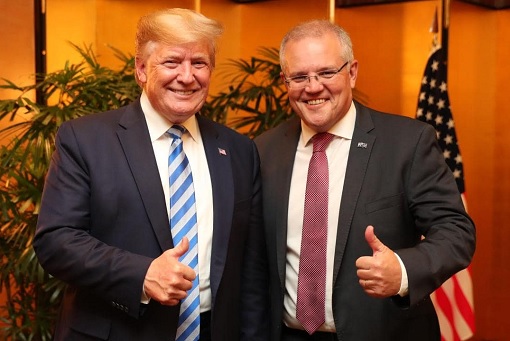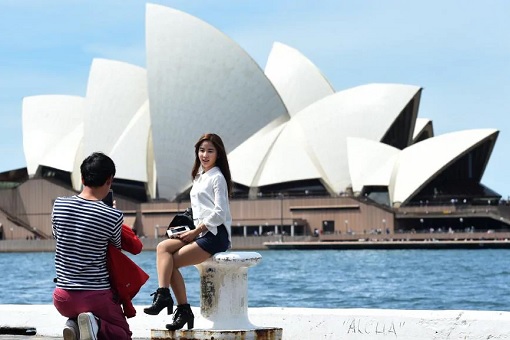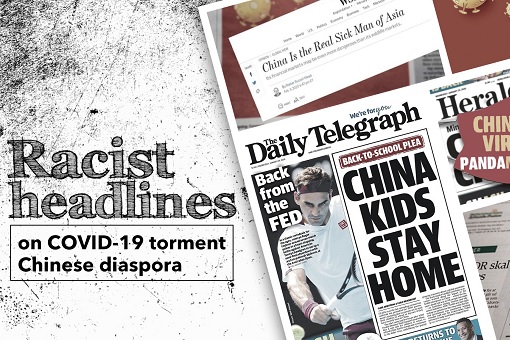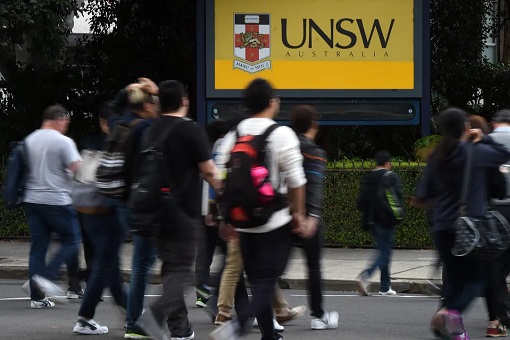Australia continues to become the punching bag of China as diplomatic tensions between both countries go south after Canberra campaigned for an international inquiry into the source of Coronavirus outbreak. Beijing has mocked Australia, perceived as the U.S. “deputy sheriff” in the Asia-Pacific region, of parroting the U.S. in its call for the inquiry.
While Scott Morrison administration argues the world needs to understand exactly what happened to prevent a repeat of an outbreak, Beijing is unconvinced, believing that the inquiry call is part of US-led propaganda against China. The relations between China and Australia have taken a hit since the deputy sheriff started its campaign in mid-April.
Last Friday, Chinese tourists were advised to stay away from Australia. The travel warning, issued by China’s Ministry of Culture and Tourism, came after Beijing slapped tariffs on Australian barley grain and restrictions on beef import last month, in addition to making life difficult for the Aussie by imposing unnecessary extra “quality” checks on Australian iron ore.

The travel warning might seem harmless because Australian borders remain closed to visitors since the Covid-19 outbreak. It could be China’s attempt to test the water and see the reaction from Australia. However, Chinese travel agents have warned that if Beijing wants to, it could hurt Australian tourism industry – permanently – by banning package tours to “the land Down Under”.
If Australia thinks China was bluffing, they better think again. South Korea can provide testimony how the Chinese government ban group tours to the country in 2017, following a political dispute between the two nations over Seoul’s deployment of a US anti-missile system – Terminal High Altitude Area Defense (THAAD).
Package tours accounted for about 60% of trips by Chinese tourists to Australia, hence last week’s “high-level” warning has attracted the attention of the Australian government. Canberra realizes that they can’t laugh off at the warning as travel operators in China could easily lose their licenses if they disobey the government’s order in the eventuality of a total ban imposed by Beijing.

According to the Australian Bureau of Statistics figures, 1.4-million (1,458,500) Chinese tourists visited Australia in the 12 months between December 2018 and November 2019, generating a cool A$12 billion a year in revenue. In essence, a ban would hit Australia’s hotels, restaurants, tourism operator and popular attractions to the tune of A$1 billion – every month.
Morrison administration’s refusal to retaliate, or inability to strike back, has been taken as a sign of weakness. There was no retaliation when China slapped an 80.5% tariff on all Australian barley grain last month. Australia’s Agriculture Minister David Littleproud said that his country would not seek a tit-for-tat retaliation against China.
Likewise, there was no retaliation when Beijing advised its citizens to avoid Australian tourism. So, on Tuesday, China upped the game – warning its students to reconsider plans to study in the country. It is using “racist attacks against Asians” to hit the Aussie’s tourism and education industries. The latest threat will punch a hole in the Australian’s A$37.6 billion education business.
The official advice issued by China’s Ministry of Education said students should do a “good risk assessment” and “exercise caution” in choosing to go to or return to Australia to study. The ministry has not issued similar advice for other countries. The statement also warned – “During the pandemic, Australia has seen multiple incidents of discrimination targeting those of Asian descent.”
While the advice to Chinese students was not strongly worded as compared to last week’s warning for Chinese tourists to stay away from Australia, it came as university campuses prepare to reopen in July. There were 164,716 Chinese students enrolled in Australian higher education last year. But about 40,000 students currently in China cannot travel overseas due to existing restrictions.
Education Minister Dan Tehan has rubbished Beijing’s allegation, saying Australia was one of the safest countries in the world for international students. He said – “We reject China’s assertion that Australia is an unsafe destination for international students. Our priority is for university campuses to be fully operational with COVID-19 safe protocols in place.”

But China was well prepared to justify its latest action. “Many Chinese in Australia were insulted or even attacked. Some Chinese and Asian families’ properties were vandalised. Chinese and Asians encountered unjust treatment at the workplace,” – a Chinese Foreign Ministry spokeswoman justified, citing Australian media reports such as the Australian Broadcasting Corporation.
Racist attacks did happen, including a case of Hong Kong student who was punched for wearing a face mask, and a case in which two Chinese students in Melbourne were abused and hit by two women yelling “go back to China”. Dr Rhea Liang, a surgeon in the Gold Coast in Queensland, recounted how a patient joked about not shaking her hand because of the Coronavirus.
On April 15, the anti-Asian racism in Australia saw 2 friends – a Malaysian and a Singaporean – were attacked with a barrage of racial slurs and brutally assaulted by two white women. One of the victims recounted the incident to 9News, saying that the attackers told them to “Get the fuck out of our country. You don’t belong here.”
The threat from China’s Education Ministry will definitely create anxiety and fear among the Australian universities. That’s because a new modelling revealed by the Australian university sector shows it will lose up to A$16 billion by 2023 due to the impact of Coronavirus. As a result, Universities Australia has requested for financial assistance package.
Australian universities, which depend on overseas students for its revenues to survive, may lose between A$3.1 billion and A$4.8 billion this year alone, not to mention the potential of losing 21,000 jobs in the sector. Based on a 20% drop in international enrollments this year, the modelling estimated a drop in revenue of A$3.3 billion, increasing to A$4.3 billion in loss with a further 20% drop in 2021.
An analysis by two Melbourne University academics found that 7 Australian universities, including Monash, RMIT and University of Technology Sydney, are on the “high financial risk” list and could face a cash crisis as a result of the downturn in revenue from international students. The University of NSW has admitted its losses could hit A$600 million this year alone.

Chinese students, who make up nearly 4 in 10 of all international enrolments, contributed A$12 billion to the education sector last year, while some universities, such as the University of Sydney, receive some A$500 million a year. Together with the 1.4 million Chinese tourists, both tourism and education sectors in Australia may lose A$24 billion if the boycott goes full speed. - financetwitter


ReplyDeletewhat a great testimony about doctor losa i want to use this oppurtunity to thank doctor losa on how i was cured from Hiv 3 months ago i want to the hospital for a test and i confirmed that i have Hiv positive since 4 years ago and i contacted so many doctors and all the doctor was all scam since 4 years ago but a friend of mine introduce me to doctor losa how he was cured from Hiv and i really contacted him and i purchase for the items after that doctor losa sent me the medication and tells me the instruction on how i will be taking the medication how i take the medication for 2 weeks and 3 days after taking it i went to the hospital to confirm and the news was so excited confirmed that i was Hiv negative once again i want to thank doctor losa for the great thing he done for me you can contact him on is EMAIL dr.losaherbalhome@gmail.com or his whatsapp number +2349056464736
and he can cure a lot of disease
1 Cancer
2 Hpv1/2
3 Hsv1/2HEPATITIS A AND B
4 DIABETIC.
5 HERPES
once again thank you doctor losa i will be ever greatful to you